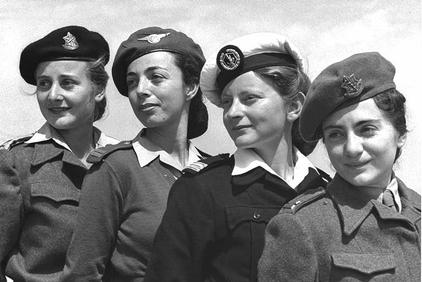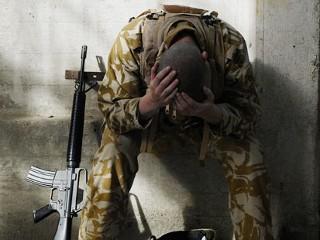The Israel Defense Forces, established in 1948, is one of Israel’s most prominent institutions, exerting influence on several aspects of the state. The central role of women in state security has been extremely prevalent throughout the history of the Israeli nation, and precedes the establishment of the state of Israel in 1948.

Israeli security has been consistently challenged since the state’s formation, which reflects the IDF’s current, and unique, organizational makeup. The Israeli Defense Forces has set an international precedent with its high female military participation rates. As an institution, the IDF has served to foster a positive societal transition towards greater gender equality in what has traditionally been a patriarchal society. Yet, numerous barriers to full equality persist.
Female influence in the Knesset, Israel’s parliament, and an increased willingness on the part of Israeli women to fight for the Israeli nation, has brought about constitutional changes which have promoted greater equality. However, Israel continues to struggle to ensure socio-economic development and an equality of opportunity for women, both during and after military service.
Following the establishment of the IDF, a constitutional framework for gender equality within the armed forces was not made a priority. Since the turn of the 20th Century, the Israeli military was largely ordered around the notion of ‘male superiority.’ While the defence organization at the time, the Haganah, conscripted both men and women, women were segregated within its ranks. In 1948, the Haganah conducted an assessment to determine whether to integrate women into men’s units or to form separate all-female battalions – the government chose the latter option.
Women’s inclusion in the IDF came about as a result of the government’s desperation for military personnel following the birth of the Israeli state. Immediately after independence, Israel faced multiple invasion attempts as its Arab neighbors frequently violated the 1949 armistice agreements. The loss of the Yom Kippur War, 1973, paired with the 1970 Israeli Feminist Movement, helped bring about changes which reflected the importance of women in the military.
The creation of a fully gender-inclusive military force was intended to promote a cohesive security union. Instead, sexual harassment, rape, and other demeaning forms of abuse became prevalent in the IDF. In an address to the Knesset in early 2014, candidate Sarah Eliash said that “the mixing of men and women is really problematic” for Israel’s military, and further argued that “the principles of modesty within Jewish tradition [are] infracted when women serve in the army, especially in mixed units.”
To that end, many women are also burdened by societal pressures to stay at home rather than pursue a military career. These women are pressured to exempt themselves from service by getting married, becoming pregnant, or adopting a religious way of life. However, men and secular Israeli women do not have the same options. These attitudes, which are supported by the Israeli Defense Service Law, serve to counter the fundamental principles of gender equity which make up the Western normative order, an order which Israel often uses to legitimize its international choices.
Within the military, women are taught to conduct themselves in a way which differs greatly from the standard practices expected of men. With such differing gender expectations, it becomes difficult to determine exactly why women join the IDF. While some women are motivated to fight for the state, others join simply in an effort to exercise their right to act for themselves, in a society which is otherwise heavily governed by disuniting gender roles.
Male IDF retirees have historically been provided greater employment opportunities in attractive, high paying industries upon completion of military service. While a transition into politics and finance are common for male veterans, similar employment opportunities are not evenly distributed or made available to women.

Despite some protest, conscription is still supported by the mainstream population in Israel. Many women contribute to the preservation of Israeli national identity through civilian service instead of military service, yet only half of all Israeli women still enlist in the IDF, compared with 70 percent of the nation’s men. On paper, the IDF has one of the most gender-neutral militaries in the world. However, while over 92 percent of all IDF jobs are now open to women, just three percent of all enlistees serve in combat roles.
Female conscription may be a longstanding tradition in Israel, but as times progress, so must laws. For the most part, conscription laws within other Western militaries have been abolished. However, as the threat to Israeli nationhood shows no sign of abating in the near future, it is unlikely that Israel will abandon its long-standing tradition of conscripted military service. Therefore, it must put a strong effort into ensuring true gender neutrality in the IDF. Such a modernization is necessary for the removal of all barriers to women’s full representation in the IDF, and the legitimacy of the IDF as the defender of Western values in the region.



